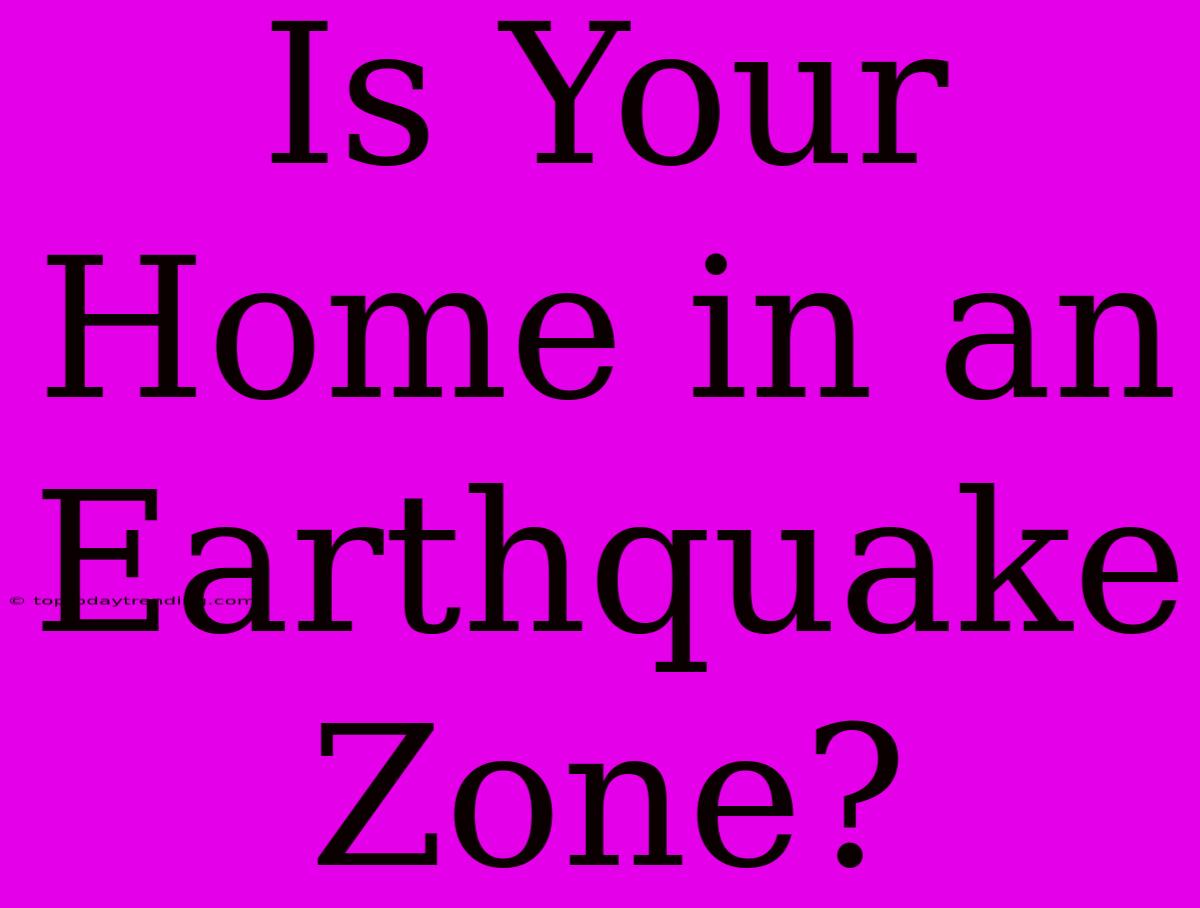Is Your Home in an Earthquake Zone?
The Ground Beneath Your Feet Isn't Always Solid
We often think of our homes as safe havens, but what happens when the very ground beneath them starts to shake? Earthquakes are a powerful force of nature that can strike anywhere, and understanding the risks is crucial for ensuring the safety of your family and property.
Understanding Earthquake Zones
The Earth's crust is made up of tectonic plates that constantly shift and collide. These interactions release immense energy, causing seismic waves that propagate through the Earth's surface. The areas where these plates meet are known as fault lines, and they are the most vulnerable to earthquakes.
The United States: A Nation With Seismic Activity
While the West Coast is most commonly associated with earthquakes, seismic activity can occur across the United States. The Pacific Coast is home to the San Andreas Fault, a major fault line that runs through California and is responsible for some of the most powerful earthquakes in history. The New Madrid Seismic Zone in the Midwest, though less known, poses a significant earthquake risk as well.
How to Determine if You Live in an Earthquake Zone
- Consult Online Maps: Many websites, including the United States Geological Survey (USGS), provide detailed maps that show earthquake zones and risk levels.
- Contact Local Officials: Your local government or emergency management agency can provide information on earthquake preparedness and the specific risk in your area.
- Research Your Home's History: If you are moving into a new home, research its construction date and any known seismic events that may have occurred in the area.
Why Knowing Your Risk Matters
Knowing whether your home is in an earthquake zone is vital for several reasons:
- Preparation: You can take proactive steps to prepare your home and family for a potential earthquake. This includes securing heavy objects, identifying safe spots, and having an emergency plan in place.
- Insurance: Earthquake insurance is often not included in standard homeowner's policies. Knowing your risk allows you to assess the need for additional earthquake coverage.
- Building Codes: Homes built in earthquake-prone areas often have stricter building codes to ensure structural integrity and safety.
Taking Action: Protecting Your Home and Family
Whether you live in a high-risk or low-risk zone, taking preventative measures is always wise:
- Retrofit Your Home: Consult a structural engineer to assess your home's earthquake resilience and explore retrofitting options to improve its strength.
- Secure Heavy Objects: Secure shelves, mirrors, and other heavy items to prevent them from falling during an earthquake.
- Develop a Family Emergency Plan: Practice earthquake drills, create a communication plan, and ensure your family knows where to meet in case of an emergency.
- Prepare an Emergency Kit: Stock up on essential supplies like water, food, first aid, and a flashlight.
Living in an earthquake-prone area requires awareness and preparedness. By understanding the risks, taking preventative measures, and being prepared to react quickly and calmly in the event of an earthquake, you can minimize the impact on your family and your home.

